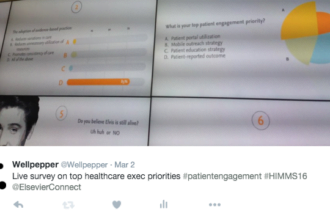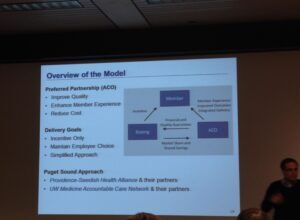So, this story from Harvard on how red meat is bad for you deserves some unpacking. First, allow me to say that all meat is not created equal: the cows that graze on the farm around the corner from where I live make meat that is quite different from that reconstituted slime used by fast-“food” restaurants. Cows that are raised on CAFOs and fed corn-based diets are practically different species from those guernseys down the street. But putting that aside, let’s just look at what the paper reports and what the numbers add up to. The investigators examined two large observational cohort studies totaling over 100,000 subjects and tried to estimate the risk of death associated with red meat consumption. Now, first, it has been widely acknowledged that dietary habit surveys are a difficult beast, and that is how these two studies got at the food history. Next, let us look at some of the numerators and denominators. The paper reports 23,926 deaths among these >100,000 subjects over 22 to 28 years of observation. The denominator for this type of a study is person-years, where you simply multiply the number of persons observed by the corresponding number of years of observation. In this instance, this value is 2,960,000 person-years. So, the roughly 24,000 deaths occurred over 2.96 million years of observation, simplifying to 24,000/2,960,000 = 8 deaths per 1,000 years overall. If we were to translate this to an individual’s risk for death over 1 year, it would be 0.008, or under 1%. The study further reports that at its worst, meat increases this risk by 20% (95% confidence interval 15-24%, for processed meat). If we use this 0.8% risk per year as the baseline, and raise it by 20%, it brings us to 0.96% risk of death per year. Still, below 1%. Need a magnifying glass? Me too. Well, what if it’s closer to the upper limit of the 95% confidence interval, or 24%? The risk still does not quite get up to 1%, but almost. And what if it is closer to the lower limit, 15%? Then we go from 0.8% to 0.92%. Does this effect size matter, even if statistically significant? What if this were a randomized controlled trial for a statin? What would we say to this result? Even if this is a real signal, which is questionable given the observational design (yes, despite holding a special affection for observational studies, I don’t think that this cause-effect is completely unconfounded; and this matters greatly in view of this minuscule magnitude), I am far more likely to die next time I get into my car than from eating burgers, even if I do indulge in one a couple of times per week. I am certainly not advocating eating red meat 7 days per week, though this view is driven more by practical concerns for sustainable beef farming than by the data presented in this paper. There are a few political issues to disentangle. I despise CAFOs and their product; I despise their contempt for the animals and for the environment; and I despise their disregard for human health. I would love to see a study that shows that CAFO-raised beef kills people, as my cognitive biases tell me it must. I would love to see them all shut down, period. And this goes for the meat packing and distributing oligopoly as well. This venom notwithstanding, the current paper gives us no ammunition to this end: it failed to explore this pivotal question. Pity! Furthermore, a study like this is likely to feed extremist marketing messages to suit someone’s agenda that will likely drag us farther away from the moderation that is conducive to our health. But my local farmers should rest easy knowing that this is not by any means a game changer, that there is nothing in this paper to make us any less enthusiastic about their product, and that our New England pastures will not any time soon be devoid of the beautiful sight of these lovely ruminants. Moderation in everything including meat consumption, is probably still the best course of action. If we focus our energies on what is genuinely good for our health, we will do right by the environment.








